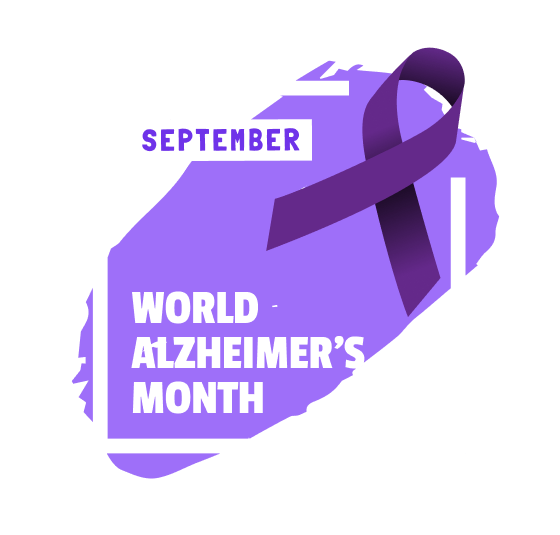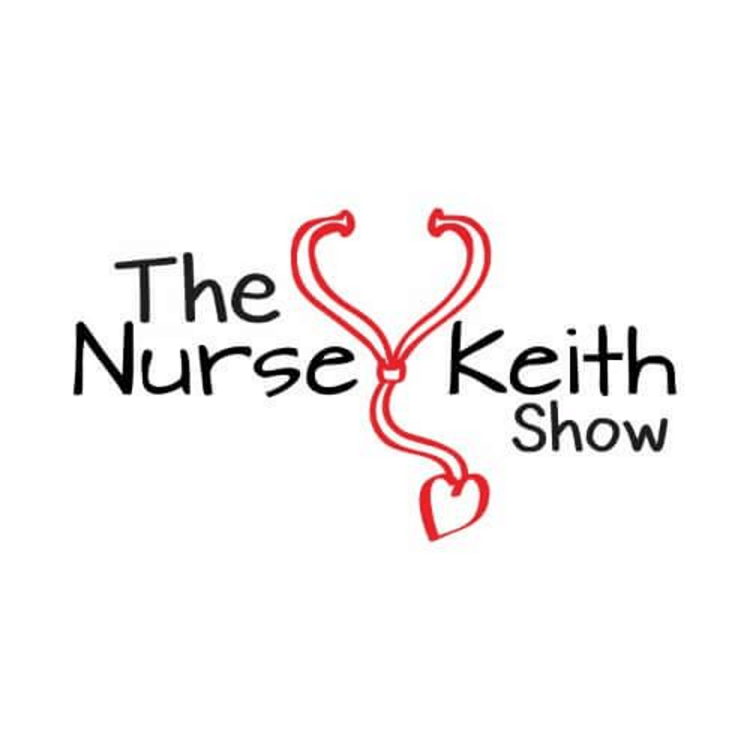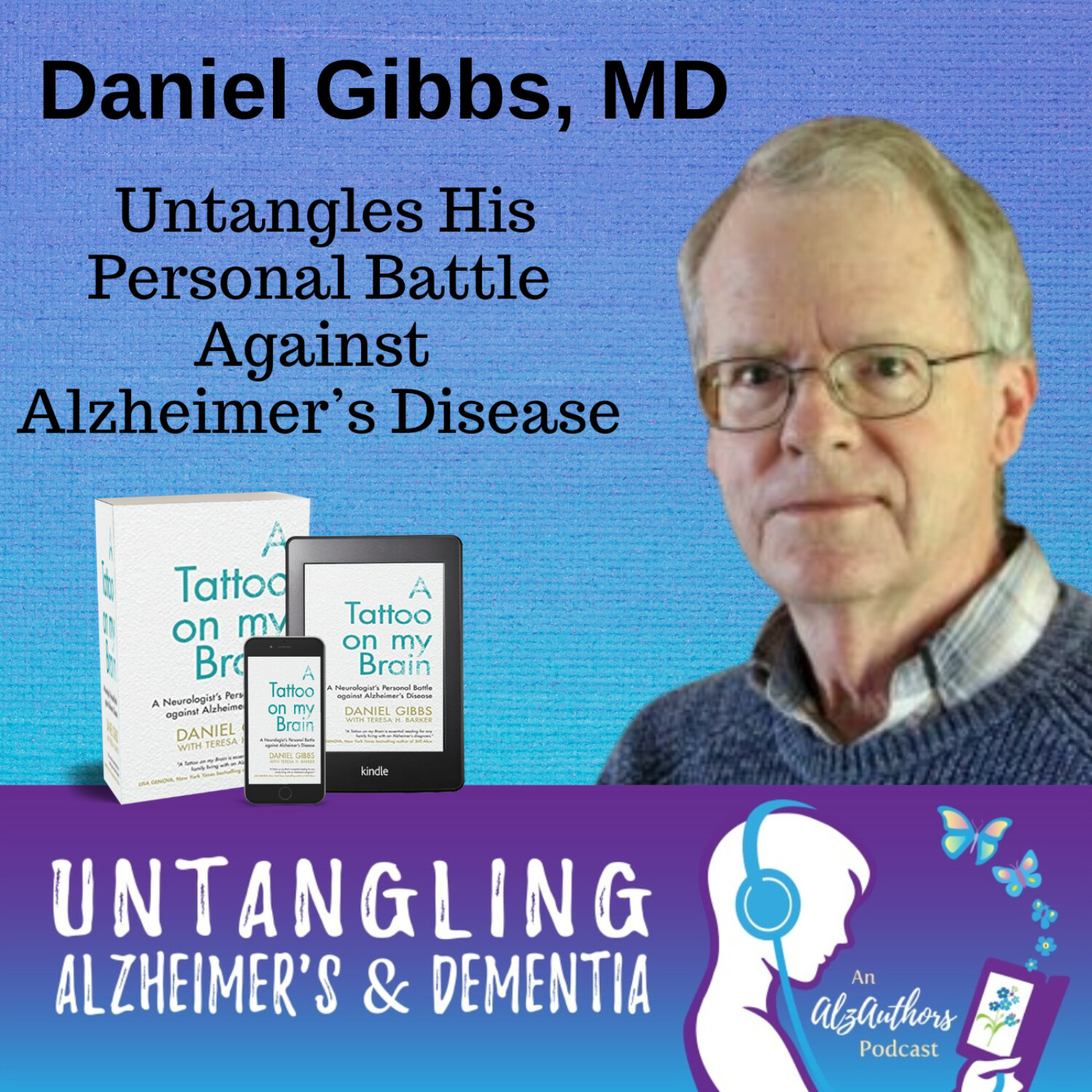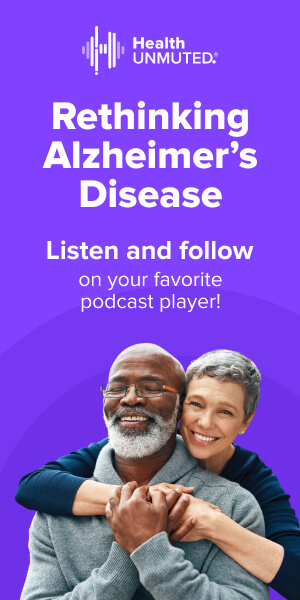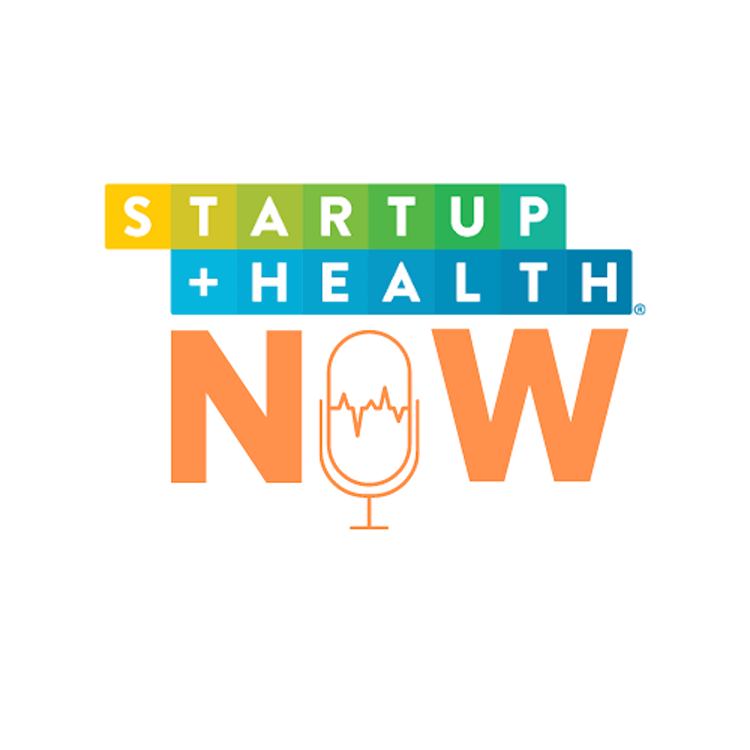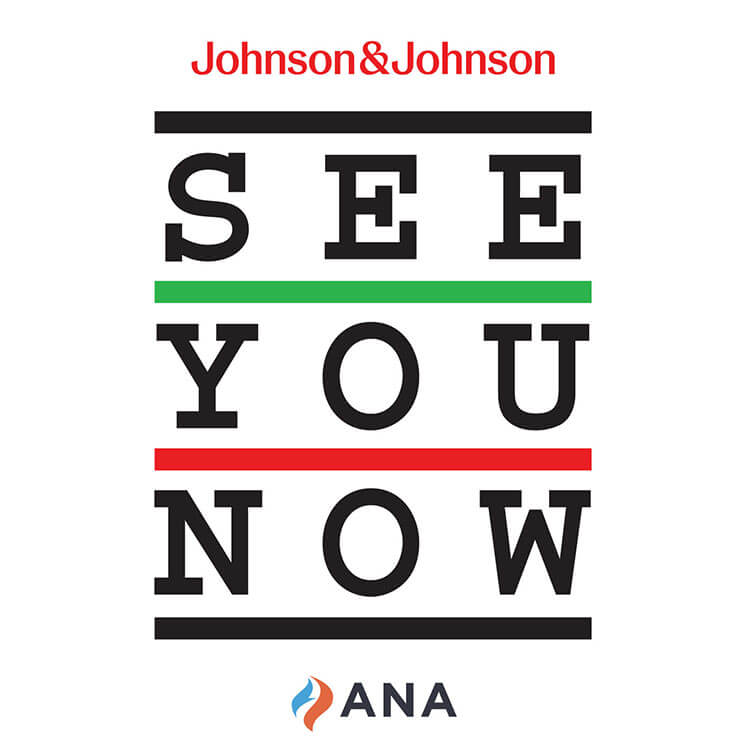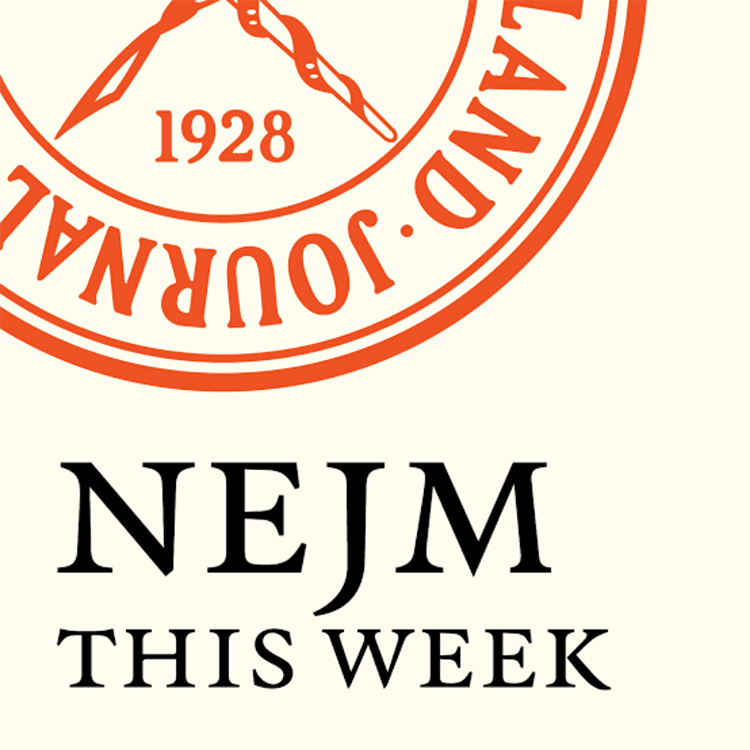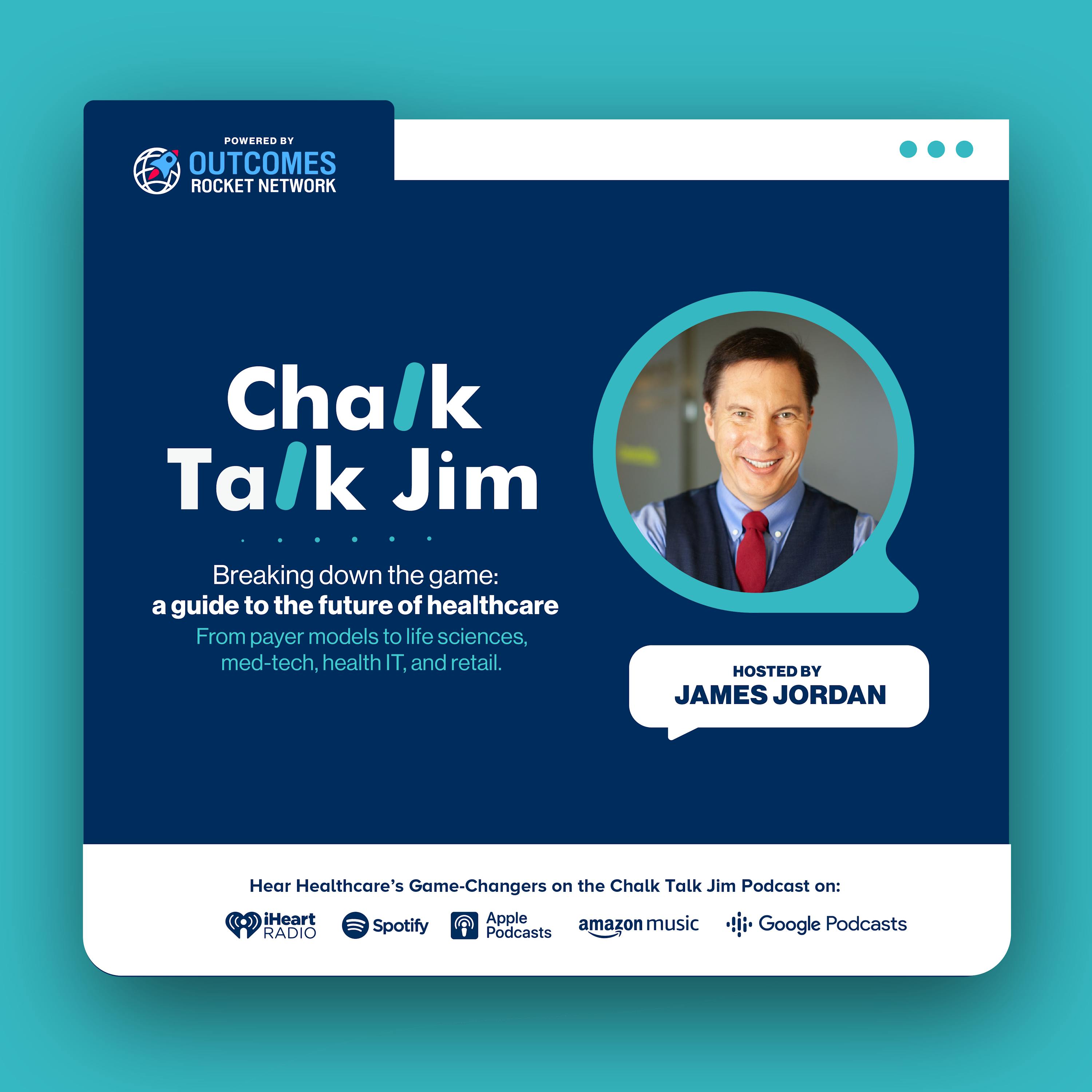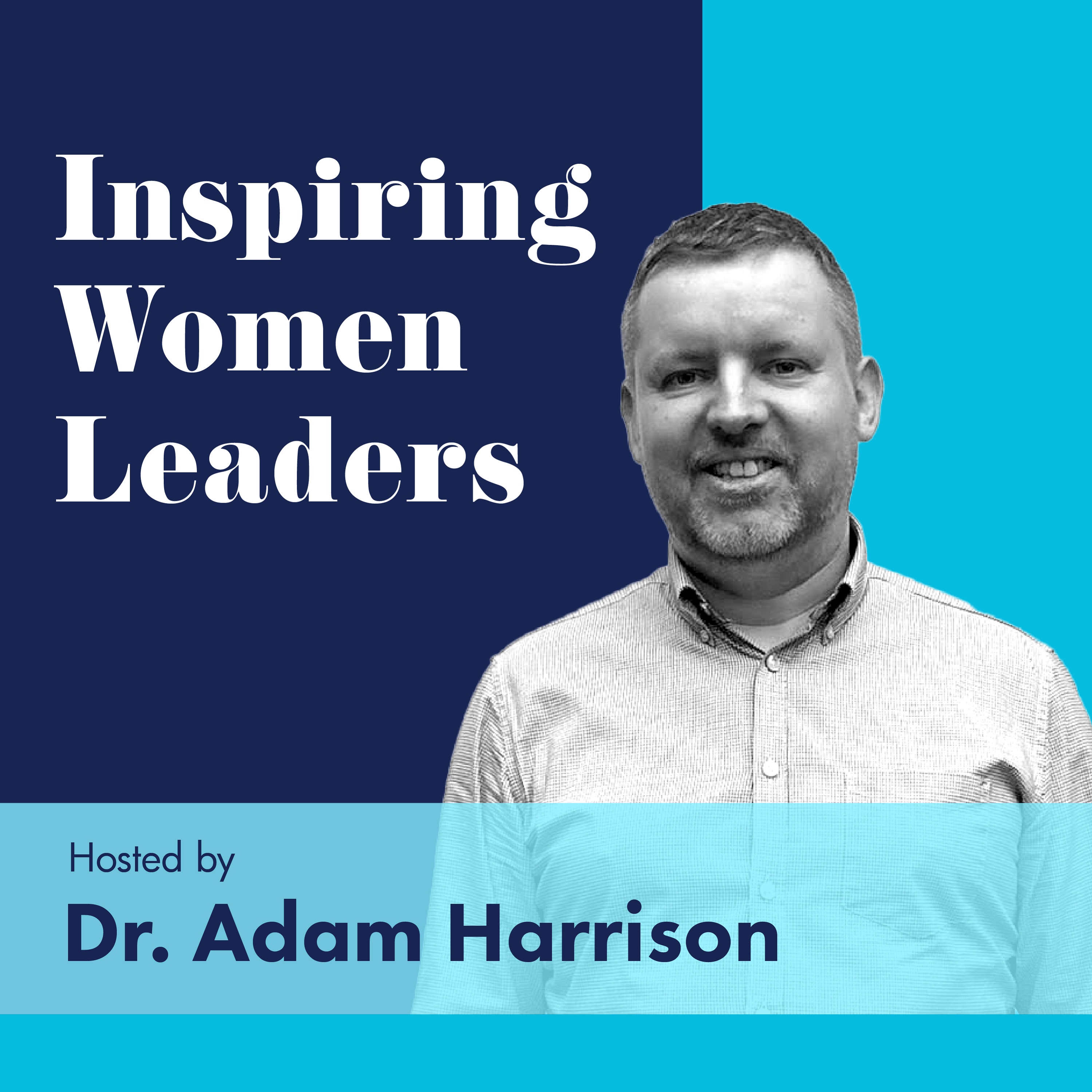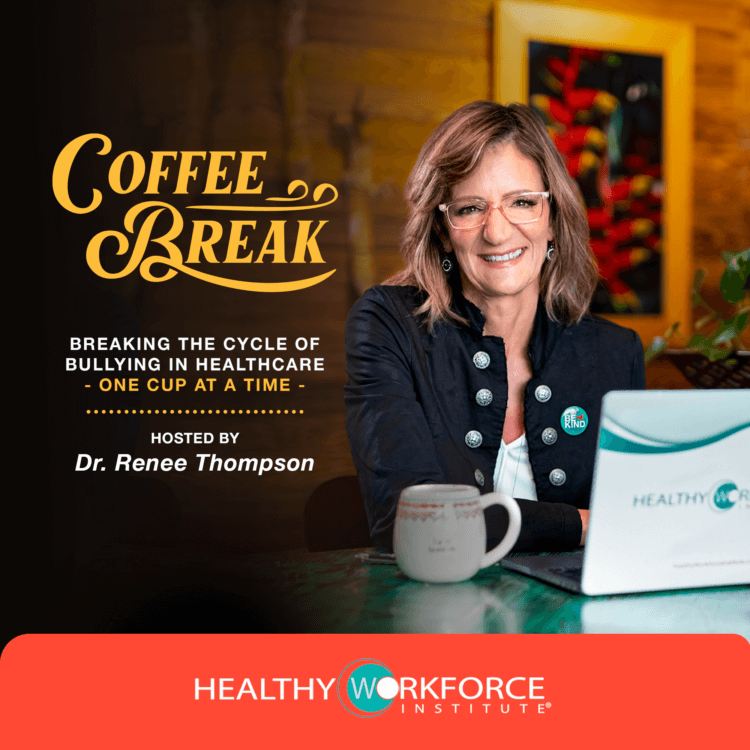Ep 6: What Does the Future Hold for Alzheimer’s Diagnosis and Treatment?
Alzheimer’s disease is a complicated condition, but researchers are continuing to make important breakthroughs in our understanding of it. In this episode of the "Rethinking Alzheimer's Disease" podcast, we explore the new era of hope in Alzheimer's research and treatment.
Scientists and doctors are excited about the advancements in early detection and promising advances that could slow down or even prevent the disease. Dr. Sharon Cohen shares that for the first time, we can detect Alzheimer's in its earliest stages through simple blood tests, known as blood-based biomarkers. This breakthrough makes diagnosis more accessible and affordable, revolutionizing how we approach Alzheimer's care.
Additionally, artificial intelligence (AI) is being used to identify digital biomarkers, such as speech and movement patterns, further aiding in early detection. We also discuss the development of disease-slowing and prevention treatments, emphasizing the importance of clinical trials in bringing these innovations to the public.
Moreover, the podcast highlights the critical need for equity and accessibility in healthcare to ensure that advancements in Alzheimer's research benefit all communities. Jason Resendez from the National Alliance for Caregiving discusses efforts to address disparities in healthcare and make new treatments more accessible.
As we conclude the Rethinking Alzheimer's Disease podcast, this episode brings messages of hope from various contributors. Thanks for your interest in Alzheimer’s and the Rethinking Alzheimer’s Disease podcast.
For links to resources and information covered in this series, visit our website at HealthUnmuted.com/resources
What did you think of this episode? We’d love to hear from you. Please visit healthunmuted.com/feedback to let us know!
Rethinking Alzheimer’s Disease was made possible with support from Eisai Inc.
[01:41] What’s the future of Alzheimer's care?
[02:41] Developments in blood-based biomarkers
[05:11] AI and digital biomarkers
[06:01] What are the advances in Alzheimer's treatments?
[07:36] The importance of clinical trials in Alzheimer’s research
[09:23] Messages of hope
Disclaimer: The content provided in this podcast is intended for informational purposes only. It is not a substitute for professional medical advice, diagnosis, or treatment. Always seek the advice of your physician or other qualified healthcare provider with any questions you may have regarding a medical condition. Never disregard professional medical advice or delay in seeking it because of something you have heard on this podcast. Reliance on any information provided by this podcast or its guests is solely at your own risk.
©2024 Mission Based Media Ltd • April 2024 • AD-M2059
April 10, 2024
by
Rethinking Alzheimer’s Disease Podcast
Ep 5: What’s the Role of a Care Partner?
Alzheimer’s disease doesn’t just affect the person who is diagnosed. It affects caregivers, too. So, if you care about someone with Alzheimer’s disease, this episode is for you.
In this episode of the "Rethinking Alzheimer's Disease" podcast, we hear from Laura, who shares the emotional journey of accepting her husband Andrew's early onset Alzheimer's diagnosis. This story opens up a discussion on the realities of Alzheimer's, not just for those diagnosed, but also for their caregivers, whether they are spouses, adult children, or even teenagers.
Dr. Joel Ebuh highlights the significant health and financial impacts on caregivers, underlining the disease's broader effects beyond the people with Alzheimer’s. Katie McDonough and Jason Resendez discuss the multifaceted role of caregivers, from providing emotional support to handling logistical challenges like treatment and medical appointments. They stress the importance of preparing for the future and the strain of uncertainty on caregivers. They also discuss the importance of caregiver self-care and why it is critical that care partners have support to manage this challenging journey effectively. We share some of the organizations and resources available.
The episode also touches on the stigma around Alzheimer's, the difficulty in initiating tough conversations such as taking away car keys, and the importance of advocating for both the patient and the caregiver's needs. Through personal stories from caregivers like Brandon Burke, who cared for his father diagnosed at 59, and expert advice from professionals like Dr. Mary Mittelman, this episode offers insights into coping mechanisms, the power of counseling, and the importance of community and support groups in navigating the complexities of Alzheimer's caregiving.
For links to resources and information covered in this series, visit our website at HealthUnmuted.com/resources
What did you think of this episode? We’d love to hear from you. Please visit healthunmuted.com/feedback to let us know!
Rethinking Alzheimer’s Disease was made possible with support from Eisai Inc.
[01:52] Confronting stigma and shame
[02:28] How to navigate care and emotional support?
[06:29] How to approach difficult conversations and adjustments?
[07:48] The importance of self-care for caregivers
[09:20] Utilizing community and online resources
[11:59] Enjoying life and making memories
Disclaimer: The content provided in this podcast is intended for informational purposes only. It is not a substitute for professional medical advice, diagnosis, or treatment. Always seek the advice of your physician or other qualified healthcare provider with any questions you may have regarding a medical condition. Never disregard professional medical advice or delay in seeking it because of something you have heard on this podcast. Reliance on any information provided by this podcast or its guests is solely at your own risk.
©2024 Mission Based Media Ltd • April 2024 • AD-M2059
April 10, 2024
by
Rethinking Alzheimer’s Disease Podcast
Ep 4: How and When Can Alzheimer’s Be Diagnosed?
Until recently, it was difficult for doctors to diagnose Alzheimer’s disease with the limited tests available. Thankfully, there are now many different options to help doctors make an accurate diagnosis of Alzheimer’s disease, even in its earliest stages.
In this episode of the "Rethinking Alzheimer's Disease" podcast, we learn about the tests that can help doctors tell whether someone is at risk of developing Alzheimer’s disease.
Dr. Sharon Cohen, who knows about Alzheimer's both as a doctor and through her own family, shares how important it is to catch the signs early. She explains the steps of figuring out if someone has Alzheimer's, starting with noticing small changes in memory or mood, to more detailed checks by doctors, and even special scans that look at brain health. She also talks about the different reasons someone might start forgetting things or acting differently, and why it's crucial to get these symptoms checked out. It's not always Alzheimer's; sometimes, other health issues could be the cause.
Until just a few years ago, treatments could only help treat symptoms, not actually slow down the disease. Now, there's hope with advances that can change the course of the disease. Dr. Cohen stresses that knowing about Alzheimer's early gives people more choices, like planning ahead, deciding on treatments, or joining studies for new medicines.
The episode wraps up by encouraging people with Alzheimer's and their families to learn more and get support from organizations and doctors. This way, they don't have to face Alzheimer's alone and can find the best way to deal with it.
For links to resources and information covered in this series, visit our website at HealthUnmuted.com/resources
What did you think of this episode? We’d love to hear from you. Please visit healthunmuted.com/feedback to let us know!
Rethinking Alzheimer’s Disease was made possible with support from Eisai Inc.
[01:49] Personal Insights from Dr. Sharon Cohen
[02:31] What are the four steps to an Alzheimer's evaluation?
[03:05] Step 1: Identifying early signs and symptoms
[06:10] Step 2: Getting initial assessments - cognitive tests and medical history
[08:19] Step 3: Referral to a neurologist and biomarker testing
[11:01] Step 4: Diagnosis and management of Alzheimer’s disease
[12:33] Navigating diagnosis and treatment options
Disclaimer: The content provided in this podcast is intended for informational purposes only. It is not a substitute for professional medical advice, diagnosis, or treatment. Always seek the advice of your physician or other qualified healthcare provider with any questions you may have regarding a medical condition. Never disregard professional medical advice or delay in seeking it because of something you have heard on this podcast. Reliance on any information provided by this podcast or its guests is solely at your own risk.
©2024 Mission Based Media Ltd • April 2024 • AD-M2059
April 10, 2024
by
Rethinking Alzheimer’s Disease Podcast
Ep 3: When Should Someone Be Concerned about Alzheimer’s Disease?
With approximately 500,000 new cases in the U.S. each year, and a potential 1 in 5 being misdiagnosed, our guests explain the critical role of early diagnosis in managing Alzheimer's. But how do you know when you should talk to your doctor about Alzheimer’s disease?
In this episode of the "Rethinking Alzheimer's Disease" podcast, we dive into the importance of early detection of Alzheimer's disease. Early detection can provide individuals with more treatment options and offer valuable time to plan for the future. Bob Finch, who was diagnosed with early-stage Alzheimer's, shares his personal journey. He highlights how the disease has affected his memory and daily functions, but also how he's adapting to this new chapter of his life with positivity and awareness.
Experts discuss how memory problems can appear. In the context of Alzheimer's, it's essential to be vigilant, especially if there's a family history of the disease. We explain the simple cognitive tests for anyone with concerns about their memory, which can help identify issues early on.
We also talk about how hard it can be to get doctors to listen when someone is worried about their memory or thinking problems. We share ideas on how to stand up for yourself and ask to see memory experts if needed. Since Alzheimer's can cause changes in mood and behavior, not just memory, we highlight how important it is to notice these signs and talk to doctors for help and tests.
This episode really drives home how important it is to catch Alzheimer's early and what people can do if they're worried about the disease.
For links to resources and information covered in this series, visit our website at HealthUnmuted.com/resources
What did you think of this episode? We’d love to hear from you. Please visit healthunmuted.com/feedback to let us know!
Rethinking Alzheimer’s Disease was made possible with support from Eisai Inc.
[01:46] Living with early-stage Alzheimer's: Bob Finch's story
[03:46] Normal forgetfulness vs. Alzheimer's symptoms
[04:36] What tests can be done to measure cognitive function?
[06:24] Advocating for cognitive evaluation
[08:20] Recognizing the subtle signs of Alzheimer's
[12:21] The value of early detection and resources
Disclaimer: The content provided in this podcast is intended for informational purposes only. It is not a substitute for professional medical advice, diagnosis, or treatment. Always seek the advice of your physician or other qualified healthcare provider with any questions you may have regarding a medical condition. Never disregard professional medical advice or delay in seeking it because of something you have heard on this podcast. Reliance on any information provided by this podcast or its guests is solely at your own risk.
©2024 Mission Based Media Ltd • April 2024 • AD-M2059
April 10, 2024
by
Rethinking Alzheimer’s Disease Podcast
Ep 2: What Are the Risk Factors for Alzheimer’s Disease? Can I Reduce My Risk?
Did you know that making changes to the way you live your life can lower your risk of Alzheimer’s disease by as much as 40%? In this episode, we look at how the things we do can affect our brain health. We also talk about the risks of getting Alzheimer's from the genes we inherit from our parents.
Our guests explain that Alzheimer's and dementia are partly modifiable, meaning that certain lifestyle changes can decrease the risk of developing these conditions. Our guest Kelly O'Brien, who has a family history of Alzheimer's, shares her relief after learning that genes are risk factors, but not absolute predictors of the disease.
We learn what factors put people at a higher risk for Alzheimer’s disease, and discuss strategies available to potentially reduce the risk of developing Alzheimer's. We highlight the importance of a "brain-healthy lifestyle," which includes managing risk factors such as heart disease, diabetes, and high cholesterol through diet, exercise, and social interaction. We also discuss the significance of genetic factors, like the APOE4 gene, but remind listeners that these do not guarantee the development of Alzheimer's.
We highlight disparities in healthcare and how they affect Alzheimer's risk and treatment, particularly in Black and Latino communities. Efforts to address these disparities and include diverse populations in clinical trials are mentioned as critical steps toward providing equitable healthcare.
This episode underscores the importance of early detection and proactive health management. Despite the genetic risks and the inevitability of aging, individuals can take significant steps to protect their brain health and possibly reduce their risk of Alzheimer's. Tune in to learn how to adopt a healthier lifestyle, and seek medical advice to navigate the risks for Alzheimer's.
For links to resources and information covered in this series, visit our website at HealthUnmuted.com/resources
What did you think of this episode? We’d love to hear from you. Please visit healthunmuted.com/feedback to let us know!
Rethinking Alzheimer’s Disease was made possible with support from Eisai Inc.
[02:07] The role of genes like APOE4 in Alzheimer's disease
[03:56] How to detect APOE4 through a genetic test
[04:57] What is the benefit of having a genetic test?
[05:48] What role does age and gender have in developing Alzheimer’s disease?
[07:10] What are the modifiable risk factors for Alzheimer's?
[09:39] Healthcare disparities and Alzheimer's risk
[11:34] What is the role of race and ethnicity in developing Alzheimer’s?
Disclaimer: The content provided in this podcast is intended for informational purposes only. It is not a substitute for professional medical advice, diagnosis, or treatment. Always seek the advice of your physician or other qualified healthcare provider with any questions you may have regarding a medical condition. Never disregard professional medical advice or delay in seeking it because of something you have heard on this podcast. Reliance on any information provided by this podcast or its guests is solely at your own risk.
©2024 Mission Based Media Ltd • April 2024 • AD-M2059
April 10, 2024
by
Rethinking Alzheimer’s Disease Podcast
Ep 1: What Is Alzheimer’s Disease?
Learn about the differences between Alzheimer's and dementia, and how Alzheimer's disease progresses. We talk about why catching the disease early can make a big difference. Dr. Sharon Cohen and Dr. Yaakov Stern walk us through the stages of Alzheimer's disease, from when there are no symptoms to when memory issues start to show. They explain the stages of Alzheimer’s and how it develops over time. We also hear from Kelly, who explains her personal experiences and concerns about developing Alzheimer’s, and what she does about it.
For links to resources and information covered in this series, visit our website at HealthUnmuted.com/resources
What did you think of this episode? We’d love to hear from you. Please visit healthunmuted.com/feedback to let us know!
Rethinking Alzheimer’s Disease was made possible with support from Eisai Inc.
[00:03:10] What's the difference between Alzheimer's disease and dementia?
[00:07:04] When does Alzheimer’s begin to develop?
[00:09:08] What is Mild Cognitive Impairment (MCI)?
[00:10:36] What is subjective cognitive decline?
[00:11:59] What is preclinical Alzheimer's disease?
[00:13:13] Why is it important to detect Alzheimer’s disease early?
Disclaimer: The content provided in this podcast is intended for informational purposes only. It is not a substitute for professional medical advice, diagnosis, or treatment. Always seek the advice of your physician or other qualified healthcare provider with any questions you may have regarding a medical condition. Never disregard professional medical advice or delay in seeking it because of something you have heard on this podcast. Reliance on any information provided by this podcast or its guests is solely at your own risk.
©2024 Mission Based Media Ltd • April 2024 • AD-M2059
April 10, 2024
by
Rethinking Alzheimer’s Disease Podcast
Shot of #DigitalHealth Therapy – The Revival
After a 217 day hiatus, Jim Joyce and I have returned to the "airwaves" with the #TheShot of #DigitalHealth Therapy" podcast. First and foremost we hope you stick around for our #AI Generated jingle for the pod (there are 2 takes), hear our key themes for Season 15 and us rewinding back the last 6 months. No guest today as we didn't want to share the virtual stage as we each had a lot to say after being quiet for 6 months:
💪 The need for grit & hustle in this market
💡 Pivotal role of #AI in healthcare
🤖 Blend of human interaction and AI in delivering health services
🧪 Highlighted the impact of #GLP-1 medications
📈 Addressing the digital transformation in healthcare and its challenges
🎶 ...oh and see me dance to the jingle....
Fun mentions as always: Joubin Mirzadegan, Kleiner Perkins (GRIT podcast), Glen Tullman, Mark Cuban Mark Cuban Cost Plus Drug Company, PBC, Gary Vaynerchuk, Dave Kerrigan, Martin Kelly, Matthew Holt, Marina Borukhovich, All-In Podcast, Jason Calacanis, Ann Mond Johnson, American Telemedicine Association, DeAnna Grosbaum, Anish Shindore, HLTH Europe
April 10, 2024
by
Shot of Digital Health Therapy
Remote Work, Compensation, and Age Dynamics: Unpacking Digital Health Workforce Trends
In this week's StartUp Health NOW episode, we’re talking about work. Specifically the digital health workforce, and we’re talking with the one and only Polina Hanin, senior principle at Aequitas Partners.
Here at StartUp Health, we had the pleasure of working with Polina for several years, and it's unlikely anyone has a better grasp on the digital health ecosystem. She’s worked with hundreds of founders and executives across healthcare. When she moved over to Aequitas, an executive recruiting firm in the digital health space, we knew she was going to continue to help a lot of people.
One thing she did, and the reason behind this interview, is launch the industry’s first – and certainly most comprehensive – workforce survey. If you work in digital health, you’ve probably seen information about it in your inbox.
In our conversation, which took place at ViVE in Los Angeles, we get into exactly what Polina has learned after four years of conducting this workforce survey. Particularly of interest were the trends around remote work compensation, attitudes towards hiring remote workers, and how work priorities shift as we age.
Lets get right into it.
Innovating in Alzheimer’s disease? Learn how you can join our new Alzheimer’s Moonshot.
Want more content like this? Sign up for StartUp Health Insider™ to get funding insights, news, and special updates delivered to your inbox.
Innovators: Health Transformer University fuels your health moonshot
Funders: Become a Health Moonshot Champion
April 10, 2024
by
StartUp Health NOW Podcast
Listen Again | 72: Marathons with Meaning
We’re cheering on runners in the 2024 Boston Marathon this week by having another listen to our episode featuring Nurse Practitioner, elite runner, and Guinness World Record holder, Samantha Roecker, FNP. A competitive runner and nurse, she has a *track record* (pun intended) of breaking barriers and addressing stigmas, and for the 2022 Boston Marathon, she combined her passion for nursing and running into mental health advocacy and raising awareness for healthcare workforce well-being. Inspired by British nurse and marathon record holder, Jessica Anderson, Sam embarked on a bold goal – breaking the Guinness World Record for fastest marathon run in a nurse’s uniform and raising thousands of dollars to support nurse well-being. In this episode, we talk with Samantha about her record-breaking run, the impact stigma has on seeking mental health services and preventing people from reaching their potential, the power of nurse-specific mental health support, and the surprising overlap between nursing and competitive running. Find this episode’s resources at www.seeyounowpodcast.com and for more information on podcast bundles, visit ANA’s Innovation Website at www.nursingworld.org/innovation. Have questions for the SEE YOU NOW team? Feedback? Future episode ideas? Contact us at [email protected].
April 10, 2024
by
See You Now
NEJM This Week — April 11, 2024
Featuring articles on alectinib in ALK-positive lung cancer, minimally invasive removal of cerebral hematomas, and CAR T-cell–mediated responses in recurrent glioblastoma; a review article on energy and macronutrients across the life span; a case report of a woman with falls and cognitive decline; a Medicine and Society on money as medicine; and Perspectives on back to the future in Alabama, on the end of B/Yamagata influenza transmission, and on the plight of DEI leaders. Supplement to the New England Journal of Medicine, Vol. 390, No. 14.
April 10, 2024
by
NEJM This Week – Audio Summaries
The Future of Medicine: How AI is Reshaping the Healthcare Landscape
There is an urgent need to balance tech innovation with robust healthcare policies and patient-centric ethical considerations.
In this episode, we sit down with Dr. Harvey Castro as he shares his vision for a future where AI and human expertise work hand in hand to deliver exceptional patient care and improve health outcomes. He shares his vision for a future where AI and human expertise work hand in hand to deliver exceptional patient care and improve health outcomes.
Tune in and uncover why embracing AI is not just a choice but a necessity for the future of healthcare!
Resources:
Connect with and follow Harvey Castro on LinkedIn.
Visit Harvey Castro’s website!
Follow Helpp.ai on LinkedIn and explore their website!
Discover Harvey’s books here.
April 10, 2024
by
Outcomes Rocket
Crafting Healthcare Culture Change through Storytelling
Joni speaks with Sonna Harding, Chief Nursing Officer for HCA Florida Twin Cities Hospital. With nearly 25 years of nursing leadership, Dr. Harding shares her journey from an ambitious high school student to a distinguished CNO, emphasizing the power of vulnerability, empathy, and storytelling in shaping patient experiences and healthcare culture. Through her personal stories, including a life-changing event involving her husband, Dr. Harding illustrates how narrative can bridge the gap between healthcare professionals and the communities they serve, ultimately fostering a culture of connection, understanding, and compassionate care. This episode is a testament to the transformative potential of leadership that combines strength with softness, and action with listening, offering invaluable lessons for healthcare professionals at all levels.
April 10, 2024
by
The Handoff
Episode 49 – Wendy Pace
Wendy Pace is the driving force behind Pace Setting Media, a trailblazer in the world of social media management and content marketing. With a solid background in corporate marketing, Wendy transitioned seamlessly into entrepreneurship when the need to stay home with her children arose. Over the past eight years, she has cultivated an in-depth understanding of messaging and its dissemination, earning a degree in communications along the way. Wendy's approach is strategic and results driven. Leveraging her expertise, she shifted from content writing to becoming a key player in social media management (SMM). At the core of Pace Setting Media's services is a comprehensive suite, ranging from content writing and blogs to direct mail marketing and email blasts. SMM stands as the bread and butter, while Wendy also dabbles in website design. Notably, her work has been featured in the Wall Street Journal and Black Enterprise Magazine, emphasizing financial independence and planning. To Wendy Pace, success isn't just measured in big contracts; it's the sum of small victories that lead to significant impacts. Pace Setting Media stands as a testament to her commitment to helping businesses thrive in the ever-evolving digital landscape.In this episode, Wendy and I chatted about:Her leadership roles Her leadership style Her leadership journey The leaders that helped her rise The challenges she faced on her journey How she navigated those challenges How she thinks you can become a strong and kind leader Her ‘take home’ leadership messages for the listeners, and What she is currently excited to be working on.Wendy can be found and/or contacted via the following online platform addresses:Websites: https://www.pacesettingmedia.comEmail: [email protected]: https://www.linkedin.com/in/wendy-pace-177559a/Please reach out to Dr Harrison for individual coaching and/or organisational training via [email protected] web address and social media profile links / handles include:www.dradamharrison.comhttps://www.linkedin.com/in/dradamharrison/www.youtube.com/c/DrAdamPhysicianCoachhttps://www.facebook.com/coachingmentoringdoctors/https://www.instagram.com/dradamharrison/
April 10, 2024
by
Inspiring Women Leaders
EP 28: Strengthening Workplace Relationships Through HR Collaboration
If you want to cultivate and sustain a healthy work culture, you have to involve your HR partners.
In this episode, Dr. Renee Thompson emphasizes the importance of fostering a healthy and respectful work culture by addressing disruptive behaviors and strengthening the relationship with human resources (HR). She advocates for unity between leaders and HR in handling problematic employees, suggesting rapport-building coffee chats, early intervention for disruptive behaviors, clear communication, decisive action, and implementing strategies to stop bullying in healthcare organizations.
Tune in and learn how to cultivate a healthier and more respectful work environment by tackling an age-old problem in healthcare: bullying and incivility!
Click this link to the show notes, transcript, and resources: https://healthyworkforceinstitute.com/podcast-episodes/
April 10, 2024
by
Coffee Break
Making Eye Care More Accessible With Next Gen Eye Testing w/Eyebot Co-Founder & CEO, Matthias Hofmann | HealthBiz Briefs
Matthias Hofmann (Co-Founder & CEO, eyebot) discusses the significant expenses and inconvenience associated with traditional eye exams, and how his company is simplifying eyecare for everyone🎙️⚕️ABOUT CARETALKCareTalk is a weekly podcast that provides an incisive, no B.S. view of the US healthcare industry. Join co-hosts John Driscoll (Senior Advisor, Walgreens Health) and David Williams (President, Health Business Group) as they debate the latest in US healthcare news, business and policy. 🎙️⚕️ABOUT MATTHIAS HOFMANNMatthias Hofmann is Co-founder and CEO at Eyebot, bringing experience from previous roles at 123 SEE, Lumicell, Formlabs, and EyeNetra. Matthias Hofmann holds a Doctor of Philosophy (Ph.D.) in Electrical Engineering from Virginia Tech and a Bachelor of Science (B.S.) in Electrical Engineering from the University of Dayton. With a robust skill set that includes Biochemistry, Molecular Biology, and more, GET IN TOUCHBecome a CareTalk sponsorGuest appearance requestsVisit us on the webSubscribe to the CareTalk NewsletterShop official CareTalk merchFOLLOW CARETALKSpotifyApple PodcastsGoogle PodcastsFollow us on LinkedIn#healthcare #healthcaretechnology #healthcarebusiness #healthcarepodcast #ai #visiontest #eyecare #nextgentech #rapideyetestingSupport the showCareTalk: Healthcare. Unfiltered. is produced by Grippi Media Digital Marketing
April 10, 2024
by
CareTalk Podcast
